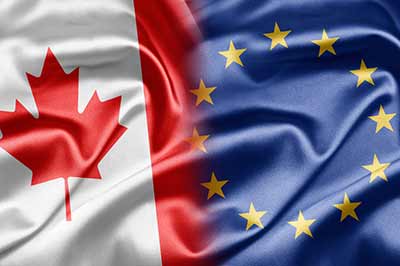The Euro to Canadian Dollar (EUR/CAD) exchange rate fell to its lowest level in a week after data showed that Canada’s economy expanded more than forecast in the final quarter of last year.
The Euro to Canadian Dollar Exchange Rate Fell To a Session Low of 1.388
According to the Ottawa based Statistics Canada, the North American nation’s economy expanded at an annualised rate of 2.4%, a quarterly rate of 0.6% and a monthly rate of 0.3%. Economists had been forecasting for annual growth to have slowed to 2%, and monthly growth improve to 0.2%.
The stronger than forecast data caused investors to raise their bets that the Canadian Central Bank will choose to leave interest rates unchanged at Wednesday’s policy meeting. The bank did cut rates in the preceding month as the bank took action to limit the negative impact of weaker oil prices.
‘It sets him up to stay on hold on Wednesday. We just have not had the full impact of lower oil prices filter through the economy yet. The central bank is going to stand aside and see how the first quarter plays out,’ said Robert Kavcic, a senior economist at Bank of Montreal in a telephone interview with Bloomberg.
Following the data’s release the ‘Loonie’ advanced against the majority of its most traded peers and climbed by more than 0.50% against the Euro.
Also supporting the Canadian Dollar was a rise in oil prices. The commodity’s value fell sharply on Monday but rallied on Tuesday after a report showed that US oil inventories grew less than expected last week.
ECB Policy Meeting in Focus
The single currency also weakened to a new one-month low against the US Dollar, as traders grow jittery ahead of the European Central Bank’s monthly policy meeting. The caution overshadowed the release of positive retail sales data from Germany and a better than forecast unemployment report out of Spain.
The ECB is widely expected to announce the details of its €1.1 trillion quantitative easing programme.
Also putting pressure on the Euro was the release of a report, which showed that investors have increased their bets that Greece could leave the Eurozone. The Euro Break-up Index (EBI) compiled by German research group Sentix rose to a two-year high in February with almost 40% of investors expecting at least one Eurozone member to leave the currency bloc this year.



